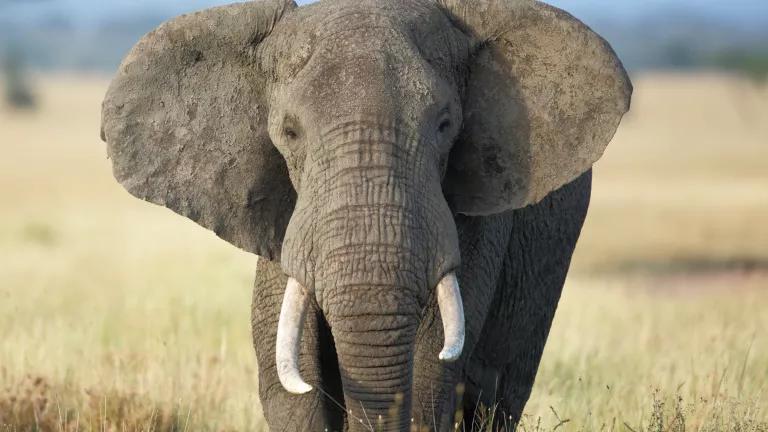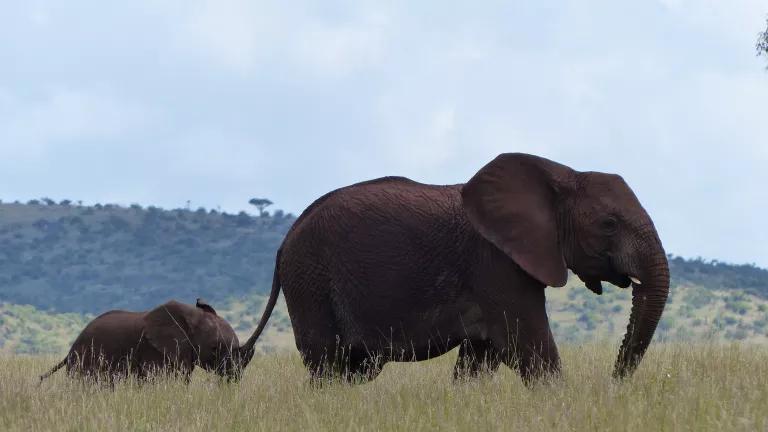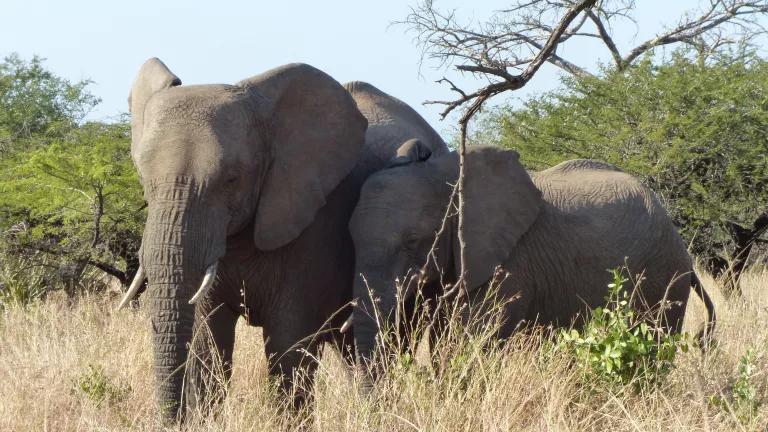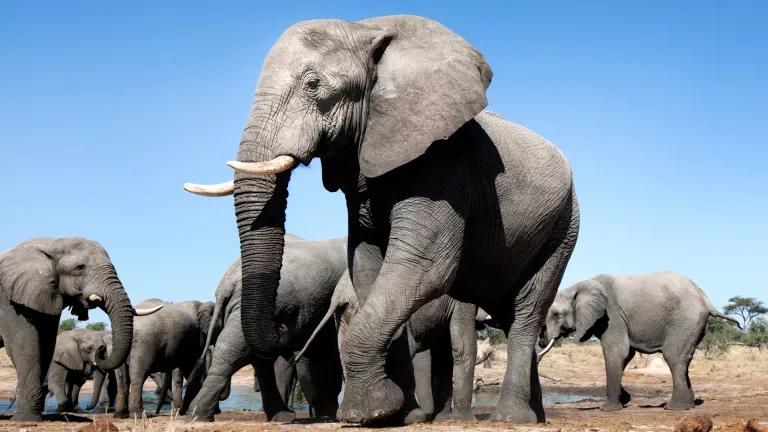Center for Biological Diversity et al. v. Zinke et al.
Case Status
Last Update

Over the past two decades, Zimbabwe’s elephant and lion populations have been devastated by poaching. Despite this, Zimbabwe continues to allow foreign trophy hunters to export African elephants and lions, which are listed as threatened under the Endangered Species Act.
The Endangered Species Act prohibits the import of threatened and endangered species into the United States unless the U.S. Fish and Wildlife Service (FWS) concludes that doing so would enhance the survival of those animals. In 2014, the agency banned the importation of elephant trophies killed in Zimbabwe and extended the ban indefinitely in 2015. FWS officials expressed concerns about Zimbabwe’s management of elephant populations, including its ability to enforce anti-poaching laws and the funding available for conservation efforts.
Then in the fall of 2017, the FWS reversed course and cleared the way for trophy imports by issuing a finding that all elephant trophies killed in Zimbabwe presumptively met the Endangered Species Act’s enhancement requirement. In doing so, the agency failed to address many of the concerns it had previously raised about the country’s wildlife management and conservation efforts. At the same time, the FWS decided to allow lion trophy imports for the first time since the agency listed lions as threatened in 2016.
To protect these imperiled species, NRDC, the Center for Biological Diversity, the Humane Society of the United States, Humane Society International, Born Free USA, and safari operator Ian Michler are challenging the FWS’s reversals in court.
In March 2018, FWS withdrew all of its trophy hunting enhancement findings based on its interpretation of a recent D.C. Circuit decision. This means that the 2017 enhancement findings are no longer in place, but neither is the 2014 import ban. FWS announced that it will consider trophy hunting permits on a case-by-case basis moving forward. NRDC dismissed its claims against the 2017 enhancement findings and is evaluating next steps.
Related Content

Trump Breaks Promise to Maintain Elephant Trophy Ban

Groups Sue Trump Admin Over Elephant & Lion Trophy Imports

NRDC v. R. Zinke et al. (International Wildlife Conservation Council)

Status Check for African Elephants
